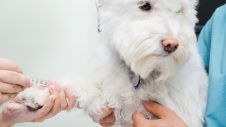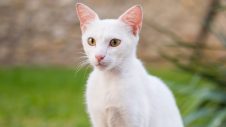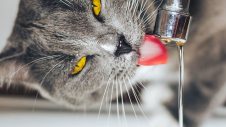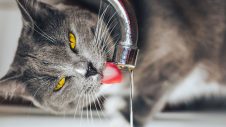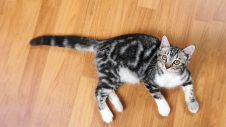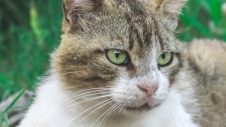What is diabetes mellitus?
Diabetes is a common disorder that affects animals similarly to the way it affects humans. It is caused by a lack of insulin in the body, or the body’s inability to respond to insulin. Insulin is produced in the pancreas and allows the body’s cells to utilise glucose from the blood for energy. When an animal does not have enough insulin, glucose levels in the blood increase. Without insulin, the body is forced to use energy sources other than glucose. This leads to a build-up of toxins in the blood.
What are the clinical signs?
- increased thirst and increased urination
- increased appetite with variable weight changes (often increase in early stages)
- depression
- lethargy
- vomiting
- sweet, ‘acetone’ breath
- dehydration
- cataracts in the eyes
How is it diagnosed?
Diagnosis of diabetes in pets is usually straightforward. A simple blood test will reveal the increased levels of glucose. However, urine tests and further blood tests can help determine the severity of the effects of diabetes on the body. Diabetic pets will require a further diagnosis to determine how severe their case is.
Do diabetic cats need to be monitored?
Yes, diabetic cats must be monitored long-term to ensure the treatment is working and to determine if any adjustments to the dose of insulin are needed. Owners should take note of their cat’s food and water intake, body weight, and general well being. Your veterinarian will do repeat blood tests at regular intervals to assess how well the blood glucose levels are controlled.
What is hypoglycaemia?
Hypoglycaemia is low blood glucose levels. It occurs if a cat receives too much insulin. The signs of dangerously low blood glucose are weakness, lethargy, shaking, unsteadiness, and convulsions. If you notice any of these symptoms, your cat should be given a glucose or sugar solution. Also, seek immediate veterinary advice. It is best to keep some glucose solution in the refrigerator in case of emergencies.
What sort of food should diabetic cats be fed?
Cats that are overweight at the time of diagnosis should be placed on a weight loss diet discussed with your vet. There are also special diets now made for diabetic cats. Your vet will advise you on what diet is best for your cat.
Treatment of diabetes mellitus in cats requires a big commitment from the owner and a stable daily routine. However, it can be very successfully managed and your cat can live a comfortable and happy life.
Contact your local Greencross Vets for advice on cats with diabetes.

 Greencross Vets
Greencross Vets 